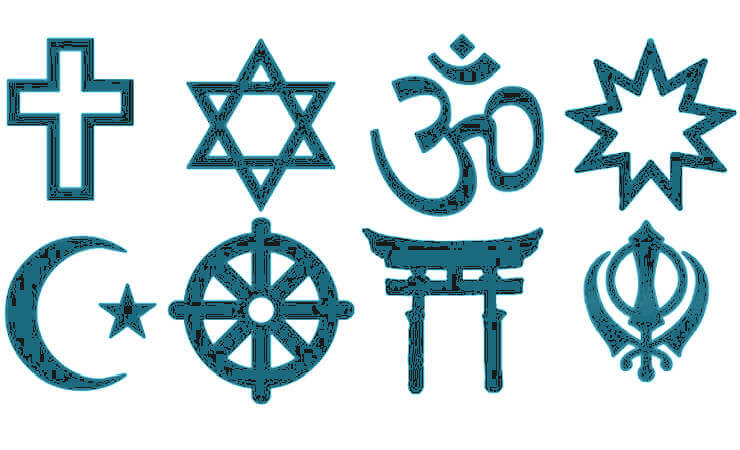
A Case for Religious Studies
Are we religiously ignorant? Do we need to know more about the religions of the world? In Religious Literacy, What Every American Needs to Know – and Doesn’t, Stephen Prothero argues that we do.
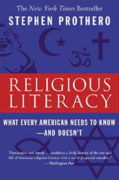
Like it or not, we live in a religious world. The number of Christians, Muslims, Hindus, Jews, and Buddhists combined is in the billions. We may encounter someone from each of these faiths in any one day.
Given this, it does seem important to know a little about world religions. The Problem? Not many people know much about their own religion, let alone the religion of another.
The United States is a religious country. However, when asked about religion, many people cannot answers basic questions. Among American teens, only 10% can name all five major world religions. And 15% cannot name any of the major religions.
Additionally, nearly 2 out of 3 Americans believe that the Bible holds the answers to the important questions of life. However, only half of American adults can name even one of the four Gospels. Additionally, many Americans are unable to name the first book of the Bible.
In Religious Literacy, Stephen Prothero believes that ‘we have a major civic problem on our hands’.
Care to test your religious knowledge? Here is a quiz from the book.
1. Name the four Gospels. List as many as you can.
2. Name a sacred text of Hinduism.
3. What is the name of the Holy Book of Islam?
4. Where according to the Bible was Jesus born?
5. President George W. Bush spoke in his first inaugural address of the Jericho Road. What Bible story was he invoking?
6. What are the first five books of the Hebrew Bible or the Christian Old Testament?
7. What is the golden rule?
8. “God helps those who help themselves”: Is this statement in the Bible? If so, where?
9. “Blessed are the poor in spirit, for theirs is the kingdom of God”: Does this appear in the Bible? If so, where?
10. Name the 10 Commandments. List as many as you can.
11. Name the Four Noble Truths of Buddhism.
12. What are the seven sacraments of Catholicism? List as many as you can.
13. The first amendment says two things about religion, each in its own “clause.” What are the two religion causes of the first amendment?
14. What is Ramadan? In what religion is it celebrated?
15. Match the Bible characters with the stories in which they appear. Some characters may match with more than one story or vice versa.
Characters:
Adam and Eve
Paul
Moses
Noah
Jesus
Abraham
Serpent
Stories:
Exodus
Binding of Isaac
Olive Branch
Garden of Eden
Parting of the Red Sea
Road to Damascus
Garden of Gethsemane
Click here to see the results and find out how you did.
Do We Need To Know More?
There are many people that will argue that they have no need to learn about other religions. However, Prothero believes that religions illiteracy is dangerous because,
…religion is the most volatile constituent of culture, because religion has been, in addition to one of the greatest forces of good in world history, one of the greatest forces of evil…. When Madeline Albright was secretary of state in the Clinton administration, she had an ‘entire Bureau of economic experts’ at her disposal but only one advisor with any expertise in religion. In The Mighty and the Almighty (2006) she notes that current US ambassadors to Muslim majority countries don’t have to have any training in Islam. That is not only foolhardy, it is dangerous. The same goes for ambassadors to India who don’t know anything about Hinduism or to China who don’t know anything about Confucianism.
Learning about another religion is far from practicing it or adopting its philosophy. It is about being culturally responsible and respectful.
Prothero is a religions studies scholar. That means that he studies other religions in an objective manner looking at what they say, believe, practice, etc. As a religious studies professor he is,
…committed to seeing the study of religion as an indispensable part of a liberal education – to viewing religious literacy as a key component, perhaps the key component, of… cultural literacy.
I am convinced that one needs to know something about the world’s religions in order to be truly educated. However, the argument… is neither that liberal education needs religious studies nor that real faith requires religious knowledge. The argument is that you need religious literacy in order to be an effective citizen.
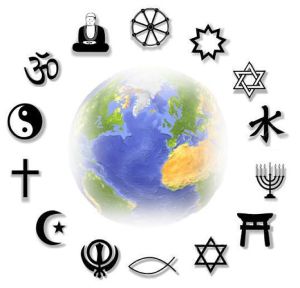
His argument makes sense. How can we interact with others if we know nothing about their core believe system?
Prothero continues,
Today, when religion is implicated in virtually every issue of natural and international import (not least the nomination of Supreme Court justices), US citizens need to know something about religion too. In an era in which the public square is, rightly or wrongly, awash in religious reasons, can one really participate fully in public life without knowing something about Christianity and the world’s religions? Without basic religious literacy? How to decide whether intelligent design is ‘religious’ or ‘scientific’ without some knowledge of both science and religion? How to determine whether the effort to yolk Christianity and “family values” makes sense without knowing what sort of “family man” Jesus was? How to adjudicate the debate between President Bush’s description of Islam as a religion of peace and the conviction of many televangelists that Islam is a religion of war without some basic information about Muhammad and the Quran? How to determine whether the current Supreme Courts first amendment jurisprudence discriminates against minority religions without knowing what Sikhs and Buddhists hold dear?
When we are uneducated, we often believe what we see on the news or what we hear from someone in power (for example, a politician).
This Important Question Remains: What Do We Do?
The author makes his agenda clear:
…my agenda is not religious. It is civic and secular. My goal is to help citizens practice fully in social, political, and economic life in a nation and a world in which religion counts.
He argues that religion needs to be studied in public schools and in higher education – not as an elective, but as a requirement.
The problem is, most people wouldn’t dare take on the subject of religion in public schools. Prothero thinks this is unfortunate:
Because of grave misunderstandings about the First Amendment and the separation of church and state, the subject of religion is taboo in many public schools.
This is something that started in the 60’s when the Supreme Court banned prayer and devotional reading of the Bible in public schools. Since then, educators have stayed clear of religion all-together.
The practice of religion, however, is very different from the study of religion. What is not allowed in public schools is religions practice.
…it is important to disentangle these matters from our core question, on which the Supreme Court has made its position plain. That question is whether it is constitutional to teach about religion in the public schools, the answer is an unequivocal yes… public school administrators, teachers, and parents have misinterpreted landmark Supreme Court decisions… So teachers act as if even mentioning God or Allah or Jesus or the Quran will land them in jail. Nothing could be farther from the truth.
It is legal to study Christianity – just as it is legal to learn about the Quran or learn about Hinduism. Not only is it legal, one has to wonder if it is the responsible thing to do, maybe even the ethical thing to do.
As the Supreme Court made the decision to ban devotional Bible reading in public schools (1963), they made sure to be clear about their stance on the study of religion.
Justice Thomas Clark, speaking for the majority said,
[I]t might will be said that one’s education is not complete without a study of comparative religion or the history of religion and its relationship to the advancement of civilization. It certainly may be that the Bible is worthy of study for its literary and historic qualities. Nothing we have said here indicates that such study of the Bible or of religion, when presented objectively as part of a secular program of education, may not be effected consistent with the First Amendment.
With respect to the same case, Justice William Brennan said,
The holding of the Court today plainly does not foreclose teaching about the Holy Scriptures or about the differences between religious sects in classes in literature or history. Indeed, whether or not the Bible is involved, it would be impossible to teach meaningfully many subjects in the social sciences or the humanities without some mention of religion.
Many people consider religion to be a major part of their life – influencing their actions and decisions. Is it reasonable to require others to know about the basic tenets of the worlds religion?
Religiou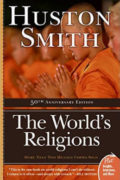 s Literacy, What Every American Needs to know – and Doesn’t gives an excellent presentation of how we are religiously illiterate and a compelling argument for why it is dangerous to be so.
s Literacy, What Every American Needs to know – and Doesn’t gives an excellent presentation of how we are religiously illiterate and a compelling argument for why it is dangerous to be so.
For anyone looking for an introduction to the study of religion, The World’s Religions, by Huston Smith is an excellent place to start.
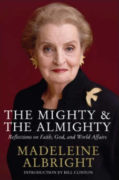
it is wondrtful idea yo know world religions. every person must know about varioud relihions.so that there will be good communicatin develops.
M.Bhanu Vijayanand
I agree! Especially in todays climate. Thanks for sharing your thoughts.